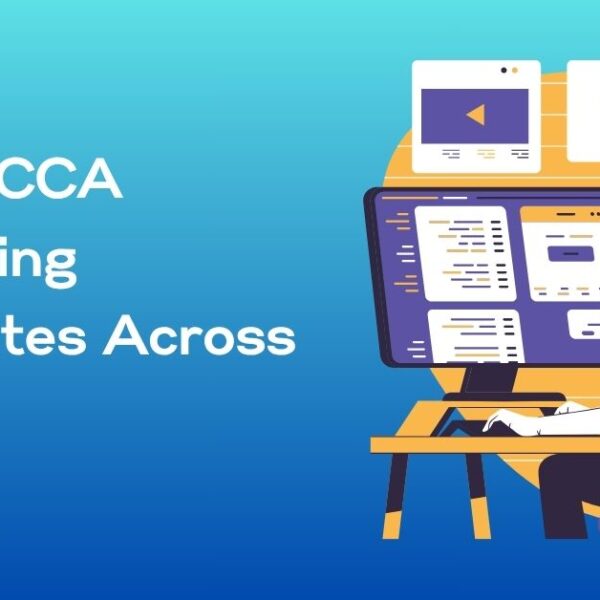For aspiring accounting professionals in Bangladesh, understanding how local ACCA course fees compare to global averages provides valuable context for educational planning. This comprehensive analysis examines the various cost components and highlights the relative value proposition of pursuing ACCA in Bangladesh.
ACCA Fee Components
The total cost of obtaining an ACCA qualification comprises several distinct elements:
Official ACCA Fees
These globally standardised fees are payable directly to the ACCA organisation:
Initial Registration Fee: This one-time payment establishes your student status with ACCA. While the fee is denominated in GBP worldwide, when converted to Bangladeshi Taka, it represents a significant initial commitment.
Annual Subscription: Paid yearly to maintain active student status, this recurring fee applies regardless of the number of examinations you attempt within the year.
Examination Fees: These vary by paper level, with Professional-level examinations commanding higher fees than Knowledge-level papers. Each examination requires a separate fee payment.
Exemption Fees: If your prior qualifications exempt you from certain papers, you’ll pay exemption fees approximately equivalent to the examination fees for those papers.
Tuition Costs
These locally determined fees vary significantly between global regions:
Classroom-Based Learning: In Bangladesh, ACCA tuition fees for classroom instruction are substantially lower than those in Western countries, typically ranging from 15% to 30% of the equivalent costs in the UK, Australia, or North America.
Online Learning Packages: Global online providers often maintain standardised pricing, though some offer regional discounts for Bangladesh and similar markets.
Study Materials
Official ACCA Materials: Textbooks and revision kits from ACCA-approved publishers maintain relatively standardised global pricing, though local editions may be available at reduced costs in Bangladesh.
Third-Party Resources: Locally produced supplementary materials offer significant cost advantages in the Bangladeshi market.
Comparative Cost Analysis
Bangladesh vs. United Kingdom
When comparing total ACCA qualification costs:
Registration and Annual Fees: These fixed costs represent a higher proportion of average income in Bangladesh than in the UK.
Tuition Costs: Classroom tuition in Bangladesh typically costs 15-25% less than UK equivalents, resulting in substantial savings.
Living Expenses During Study: Pursuing ACCA while living in Bangladesh rather than relocating internationally generates the most significant cost differential.
Bangladesh vs. Regional Neighbours
Compared to India: ACCA costs in Bangladesh generally align with Indian fee structures, with slight variations in tuition fees based on city and provider.
Compared to Singapore and Malaysia, Bangladesh offers ACCA education at approximately 30-40% of the cost in these more developed Asian markets.
Value Proposition Analysis
Cost-to-Income Ratio
The investment in ACCA education relative to potential earnings creates a compelling value proposition in Bangladesh:
Qualification Cost as Percentage of Starting Salary: In Bangladesh, the complete ACCA qualification typically costs the equivalent of 10-12 months of post-qualification starting salary.
Global Comparison: This compares favourably to Western markets, where the cost-to-starting-salary ratio often exceeds 18-24 months of earnings.
Return on Investment Timeline
Payback Period: Based on average salary differentials between ACCA-qualified professionals and those with only undergraduate qualifications, the typical payback period in Bangladesh ranges from 2 to 3 years.
Career Earnings Premium: The lifetime earnings premium for the ACCA qualification in Bangladesh continues to grow, particularly as multinational corporations expand their presence in the country.
Cost Optimisation Strategies
To maximise the value of your ACCA investment in Bangladesh:
- Strategically schedule multiple examinations within each annual subscription period
- Consider self-study approaches for stronger subject areas
- Utilise local study groups to share resource costs
- Take advantage of early registration discounts for examination entries
- Explore scholarship opportunities offered by ACCA and local providers
Future Fee Trends
Several factors will influence ACCA-related costs in Bangladesh:
- Currency fluctuations affecting GBP-denominated ACCA fees
- Growing competition among tuition providers
- Increasing adoption of digital learning technologies
- Expanding scholarship programmes from employers and providers
While ACCA represents a significant educational investment, the favourable fee environment in Bangladesh compared to global averages enhances the qualification’s accessibility and value proposition for aspiring accounting professionals in the country.








